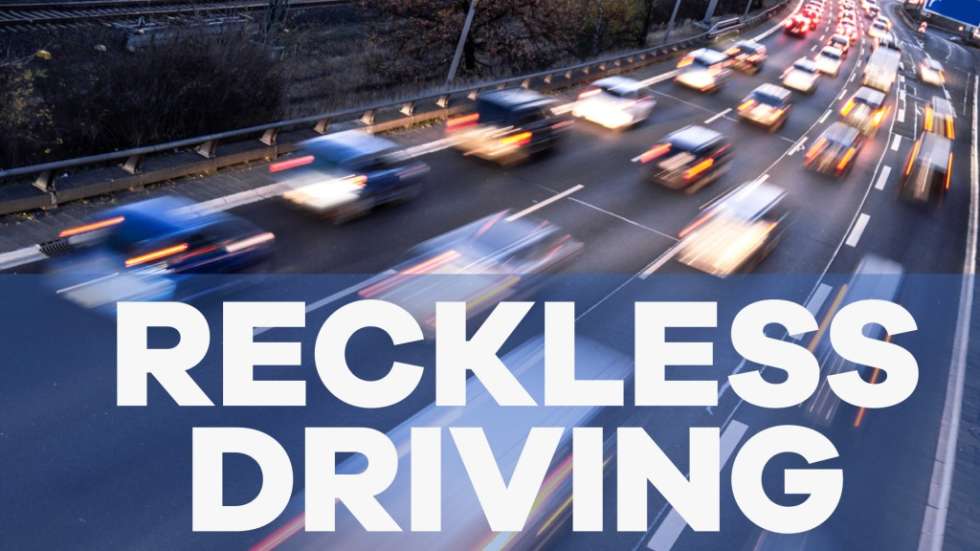Workers Compensation Frequenty Asked Questions (FAQ)
John M • April 21, 2020
You've been injured at work and now need to know what to do next. This guide provides answers to the most common questions workplace accident victims and their loved ones have about their legal rights in this situation.
The following FAQ list is intended to help employees understand what they can expect if they suffer a workplace injury. If you have been hurt in a workplace accident, you need to consult an experienced Workers Compensation attorney for advice about your specific case.
The following FAQ list is intended to help employees understand what they can expect if they suffer a workplace injury. If you have been hurt in a workplace accident, you need to consult an experienced Workers Compensation attorney for advice about your specific case.
1. What are workers’ compensation benefits?
The Virginia Workers' Compensation Act requires anyone who employs more than three people to buy Workers' Compensation insurance. Workers' Compensation benefits are the payments injured workers can receive from these insurance policies.
These benefits are available regardless of fault. Even if the employee caused their own injury, Workers' Compensation benefits are still mandated under Virginia law. However, in return for this broad protection, employees covered by Workers' Compensation insurance cannot sue their employer for their injuries.
The possible awards are strictly defined by Virginia law and only cover direct medical expenses and some lost wages. Workers' Compensation insurance does not provide any award for "consequential injuries," such as pain and suffering. Employees can receive Workers' Compensation benefits in the following situations:
Virginia law imposes the following limits on Workers' Compensation awards:
While Virginia law bars employees from suing their employer for workplace injuries You've been injured at work and now need to know what to do next. This guide provides answers to the most common questions workplace accident victims and their loved ones have about their legal rights in this situation.
The following FAQ list is intended to help employees understand what they can expect if they suffer a workplace injury. If you have been hurt in a workplace accident, you need to consult an experienced Workers Compensation attorney to seek advice about your specific case.
These benefits are available regardless of fault. Even if the employee caused their own injury, Workers' Compensation benefits are still mandated under Virginia law. However, in return for this broad protection, employees covered by Workers' Compensation insurance cannot sue their employer for their injuries.
The possible awards are strictly defined by Virginia law and only cover direct medical expenses and some lost wages. Workers' Compensation insurance does not provide any award for "consequential injuries," such as pain and suffering. Employees can receive Workers' Compensation benefits in the following situations:
- Death of a loved one due to injury or illness related to their employment
- "Occupational diseases" caused by your employment
- Injuries caused by workplace accidents
Virginia law imposes the following limits on Workers' Compensation awards:
- Lost wages are capped at 2/3 of your weekly pay
- Lost wage benefits end after 500 weeks unless you suffer permanent disability
- If you lose a body part due to a workplace injury, you can receive an award for partial impairment
- Employers can require workers to seek treatment from a list of three doctors selected by them
- In some situations, the Virginia Workers Compensation Commission (WCC) can select the physician panel
- Changing physicians requires approval from both the employer and the WCC
While Virginia law bars employees from suing their employer for workplace injuries You've been injured at work and now need to know what to do next. This guide provides answers to the most common questions workplace accident victims and their loved ones have about their legal rights in this situation.
The following FAQ list is intended to help employees understand what they can expect if they suffer a workplace injury. If you have been hurt in a workplace accident, you need to consult an experienced Workers Compensation attorney to seek advice about your specific case.
2. Can I Sue My Boss?
If your employer covers his employees with Workers' Compensation insurance, then Virginia law considers these benefits an "exclusive remedy" for any work-related injury. You may not sue.
Even if your employer has less than three employees, the firm may still choose to buy a Workers' Compensation insurance policy.
In the cases where your employer is not required by Virginia law to carry Workers' Compensation insurance, or they have failed this duty, you can sue your boss. However, you will then have to prove that your employer caused your injury.
Also, if you bring action against a third-party for your injury, any award will be reduced by the amount of Workers' Compensation benefits you have received from your employer's Workers' Compensation insurance.
Even if your employer has less than three employees, the firm may still choose to buy a Workers' Compensation insurance policy.
In the cases where your employer is not required by Virginia law to carry Workers' Compensation insurance, or they have failed this duty, you can sue your boss. However, you will then have to prove that your employer caused your injury.
Also, if you bring action against a third-party for your injury, any award will be reduced by the amount of Workers' Compensation benefits you have received from your employer's Workers' Compensation insurance.
3. If I am injured while working, can I get treatment from my doctor?
The short answer is yes, under certain circumstances. Workers' Compensation should cover all reasonable medical expenses, including immediate diagnosis and treatment. If, for example, you only discover the injury while being treated by your personal doctor, those expenses should be covered.
Seek advice from your attorney if you wish the change doctors. Legal counsel can explain to the WCC, and your employer, why such a change is beneficial to your treatment plan. Further, a Virginia Workers' Compensation lawyer can help guide you through this process.
However, if your employer has selected a three-doctor panel, you need to use one of those physicians. You can seek to change medical providers to your own doctor, but both the WCC and your employer must approve the switch.
4. If I get benefits, can I still work?
Yes, but you can only receive Workers' Compensation benefits if your injuries restrict you to a less-demanding, lower-paying position. If this restriction is temporary, you can receive a time-limited benefit for temporary partial disability. If your restriction is permanent, you can receive compensation for permanent partial disability.
The amount you will receive will be based upon your 52-week average salary for the period just before you were injured. Your partial disability award will be 2/3 of the difference between your pre-injury weekly salary and your post-injury weekly salary.
Disability benefits will stop whenever you regain your former work capabilities. They are also capped at 500 weeks, unless you qualify for permanent disability under Virginia law. Legal counsel can consult with your physician to help you determine if you are eligible for either partial or total disability.
The amount you will receive will be based upon your 52-week average salary for the period just before you were injured. Your partial disability award will be 2/3 of the difference between your pre-injury weekly salary and your post-injury weekly salary.
Disability benefits will stop whenever you regain your former work capabilities. They are also capped at 500 weeks, unless you qualify for permanent disability under Virginia law. Legal counsel can consult with your physician to help you determine if you are eligible for either partial or total disability.
5. What happens if I am denied?
If insurance denies your Workers' Compensation claim, you should seek legal counsel. The first step in resolving this dispute will be to file a complaint with the Virginia Workers' Compensation Commission (WCC) within two years after your injury.
If you fail to file your dispute with the WCC within the two-year window, you lose any right to Workers' Compensation.
In many cases, your lawyer can resolve the issue with your employer (and/or their insurance company) without a formal hearing before the WCC. However, any Workers' Compensation action that goes to a hearing before the WCC will require you to present evidence to back your claims. This is an adversarial process that can involve presenting medical records and expert testimony.
If the WCC rules against you, your lawyer can help you file an appeal to this decision.
If you fail to file your dispute with the WCC within the two-year window, you lose any right to Workers' Compensation.
In many cases, your lawyer can resolve the issue with your employer (and/or their insurance company) without a formal hearing before the WCC. However, any Workers' Compensation action that goes to a hearing before the WCC will require you to present evidence to back your claims. This is an adversarial process that can involve presenting medical records and expert testimony.
If the WCC rules against you, your lawyer can help you file an appeal to this decision.
6. How long do I have to file for Workers' Compensation?
Under most circumstances, you must file a claim within two years of the injury. However, that two-year time period can be measured in different ways.
If your injury is immediately obvious, then you have two-years from the date of the injury to file a claim. However, sometimes work-related injuries aren't apparent when they occur. If, for example, you contract a work-related illness, your two-year "time-clock" to file a Workers' Compensation claim will begin when your doctor diagnoses the condition.
If you are seeking compensation for the death of loved one, you must file your claim within two years after their passing.
However, these aren't hard-and-fast rules. There are exceptions that can "toll" (stop) the time clock. Seek legal counsel even if your injury occurred more than two-years ago. Your case might fit one of these exceptions.
If your injury is immediately obvious, then you have two-years from the date of the injury to file a claim. However, sometimes work-related injuries aren't apparent when they occur. If, for example, you contract a work-related illness, your two-year "time-clock" to file a Workers' Compensation claim will begin when your doctor diagnoses the condition.
If you are seeking compensation for the death of loved one, you must file your claim within two years after their passing.
However, these aren't hard-and-fast rules. There are exceptions that can "toll" (stop) the time clock. Seek legal counsel even if your injury occurred more than two-years ago. Your case might fit one of these exceptions.
7. How can a lawyer help me with my workers’ compensation claim?
A Workers' Compensation claim can be a complicated process. It can lead to disputes with your employer, their insurance company, the Virginia Workers Compensation Commission (WCC), medical providers, and other interested parties.
For most people, a Workers' Compensation claim is a completely new experience. However, an experienced Virginia Workers' Compensation lawyer has handled many such cases. In general, your lawyer can help you understand every stage of the process.
An experienced Workers' Compensation attorney can:
For most people, a Workers' Compensation claim is a completely new experience. However, an experienced Virginia Workers' Compensation lawyer has handled many such cases. In general, your lawyer can help you understand every stage of the process.
An experienced Workers' Compensation attorney can:
- Explain how Virginia law applies to your case
- Use their experience to anticipate problems before they occur
- Review your medical records
- Consult with your medical provider to fully understand the legal consequences of your condition
- Help you avoid disputes with your employer
- File paperwork with the Virginia Workers' Compensation Committee
- Handle hearings with the WCC
- Appeal WCC decisions
- Provide legal advice for other areas of your life impacted by your injuries
- Communicate with your employer's insurance company
Aside from advising you about the legal ramifications of a Workers' Compensation claim, your lawyer can give you personal advice as someone who has been through this process with many other clients.
Take Aways
A Workers' Compensation claim can be a life-changing event for many people. A workplace injury disrupts many aspects of your life well beyond your job. It can affect you, your family, and other loved ones in ways that you can't anticipate today.
Not only do you have to heal, you may have to endure painful rehabilitation, and adjust to either a temporary or permanent disability. You may have to rethink your plans for the future and establish a new routine. Acrimonious disputes with insurance companies, your employer, and the Virginia Workers Compensation Committee could loom in the future.
However, you don't have to face these things alone. An experienced attorney can help get your life back on track. If you have suffered an injury at work, please seek legal counsel. Call our offices now, we are here to help you!
Not only do you have to heal, you may have to endure painful rehabilitation, and adjust to either a temporary or permanent disability. You may have to rethink your plans for the future and establish a new routine. Acrimonious disputes with insurance companies, your employer, and the Virginia Workers Compensation Committee could loom in the future.
However, you don't have to face these things alone. An experienced attorney can help get your life back on track. If you have suffered an injury at work, please seek legal counsel. Call our offices now, we are here to help you!











